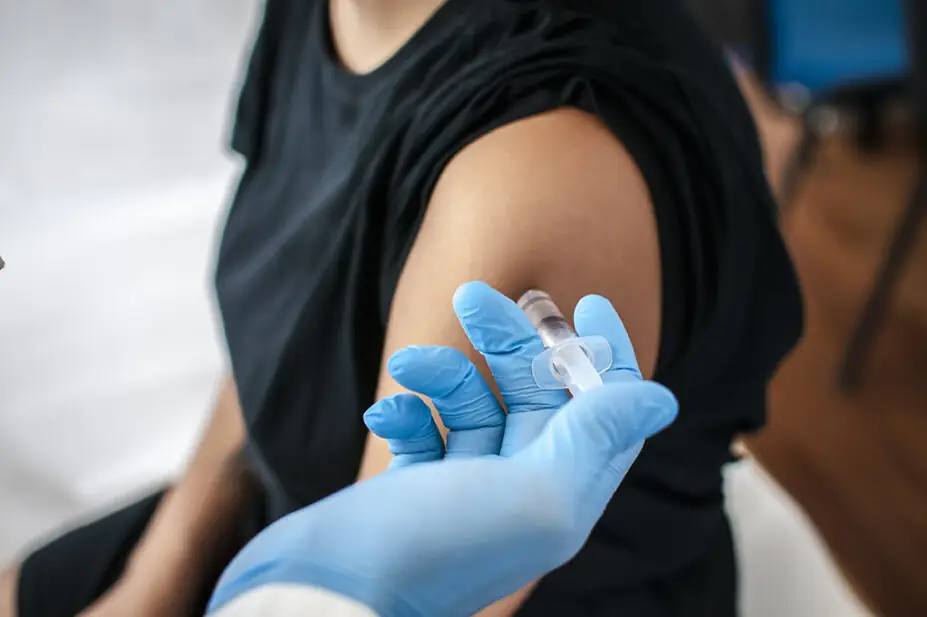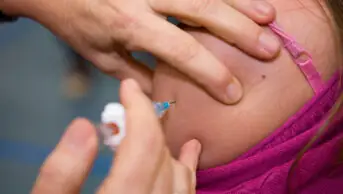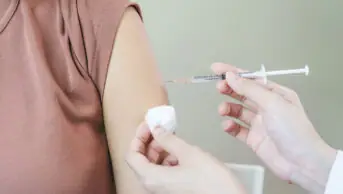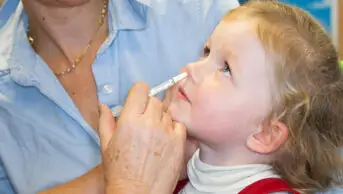
Shutterstock.com
Older adults who receive the respiratory syncytial virus (RSV) vaccines Abrysvo (Pfizer) and Arexvy (GSK) should be advised of “rare or very rare” cases of Guillain-Barré syndrome following vaccination, the Medicines and Healthcare products Regulatory Agency (MHRA) has said.
In a drug safety update issued on 7 July 2025, the MHRA said that vaccination with Abrysvo and Arexvy in adults aged 60 years and over has been associated with an increased risk of Guillain-Barré syndrome, although the risk is very small.
Guillain-Barré syndrome is an inflammatory condition that affects the peripheral nervous system.
According to the charity Inflammatory Neuropathies UK, the condition affects around 1,300 people each year in the UK.
A US observational study of people aged 65 years and over, published in 2024, estimated that Abrysvo was associated with nine excess cases of Guillain-Barré syndrome per million vaccine doses, while Arexvy was associated with seven excess cases per million vaccine doses, the update said.
The safety update also said that, as of 2 June 2025, the MHRA had received 21 Yellow Card reports of suspected Guillain-Barré syndrome in older adults aged 75–79 years, where known, following the administration of Abrysvo, in the context of over 1.9 million doses.
No Yellow Card reports had been received in relation to Arexvy.
The update added that there was no evidence of increased risk of Guillain-Barré syndrome in pregnant women who receive the Abrysvo vaccine, which is the only vaccine licensed for use during pregnancy.
Healthcare professionals are asked to be “attentive to signs and symptoms of Guillain-Barré syndrome” in recipients of the vaccine and advise patients to “seek immediate medical attention” if they notice symptoms that could be the syndrome, the update said.
Arexvy was authorised by the MHRA in July 2023 for the prevention of RSV in adults aged over 60 years, while Abrysvo was licensed in November 2023.
The NHS England community pharmacy RSV vaccination programme began in September 2024 and uses the Abrysvo vaccine, while Arexvy is available privately.
A spokesperson for Pfizer said: “Guillain-Barré syndrome is listed as a rare adverse event in the Abrysvo UK patient information leaflet, affecting up to 1 in 1,000 people. The Commission on Human Medicines advises that the benefits of vaccination against RSV outweigh this small risk of developing Guillain-Barré syndrome in older adults.
“As with every medicine and vaccine, Pfizer has robust processes to meet its regulatory responsibilities to closely monitor, report and analyse all adverse events and collect relevant information to assess any new potential safety risks that may be associated with the RSV (bivalent, recombinant) vaccine.
“As part of our pharmacovigilance efforts and compliance with regulatory requirements related to quality and safety, we also work closely with the MHRA in the UK, as they independently monitor the safety profile of our vaccine.”
A spokesperson for GSK said: “GSK’s top priority is patient safety. We are committed to monitoring and ensuring the safety of all our products, including our RSV vaccine.
“With 64 million people impacted by RSV globally and nearly half a million adults hospitalised in high-income countries every year, RSV vaccines respond to a significant unmet medical need.”
In a parliamentary answer, published on 8 July 2025, health minister Ashley Dalton said that approximately 8,000 people received their RSV vaccine in community pharmacies between October and November 2024. The majority of the programme was delivered in general practice, she said.
She added that the UK Health Security Agency suggests that there were 30% fewer hospital admissions in adults aged 75–79 years, who are eligible for the vaccine under the new programme, than there would have been without vaccination.


